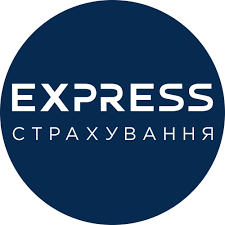
PJSC Ukrainian Graphite (Ukrgraphite, Zaporizhia) intends to conclude an agreement to supply graphite products to the UK by the end of the year worth up to EUR50 million.
According to the company, the board of directors of Ukrgraphite has decided to “conclude a foreign economic contract for the supply of graphite products with CARBON CONSTRUCTION & TRADING LIMITED, Edinburgh, UK, valid until December 31, 2025, unless a longer term is agreed with the counterparty, for an amount not exceeding €50 million.” Edinburgh, United Kingdom, valid until December 31, 2025, unless a longer term is agreed with the counterparty, for an amount not exceeding EUR 50 million or its equivalent in the national currency of Ukraine or US dollars.”
It is specified that such plans were approved based on the decision of the general meeting of shareholders to give preliminary consent to the company’s board of directors to perform significant transactions regarding the conclusion of agreements, deals, and contracts with the relevant counterparty.
In accordance with the law, the market value of the property or services that are the subject of the transaction is UAH 2 billion 427.510 million.
The value of the issuer’s assets, according to the latest annual financial statements, is UAH 4 billion 384.136 million.
Eight of the nine elected members participated in the board of directors meeting and voted unanimously.
Ukrgrafit is a leading Ukrainian manufacturer of graphite electrodes for electric steel melting, ore-thermal, and other types of electric furnaces, commercial carbon masses for Soderberg electrodes, and carbon-based refractory materials for metallurgical, machine-building, chemical, and other industrial complexes.
According to the National Depository of Ukraine (NDU) for the first quarter of 2025, Intergraphite Holdings Company Limited (Malta) owns 23.9841% of the private joint-stock company, and C6 Safe Group Limited (Cyprus) owns 72.0394%.
The authorized capital of the private joint-stock company is UAH 233.959 million, and the nominal value of a share is UAH 3.35.

One of Ukraine’s largest grain market operators, Nibulon, has signed a contract with the seaport of Chornomorsk for the transshipment of up to 1 million tons of agricultural products in preparation for the new marketing year, the grain trader’s press service reported on Facebook.
The agricultural holding noted that the signing of this contract was a decisive step in the formation of a flexible logistics model that will allow Nibulon to maintain continuity of exports even without access to its own terminal. In addition, despite the surplus of transshipment capacity on the market, the company managed to achieve a balance of interests. Furthermore, optimized regional logistics will help create added value for Ukrainian farmers.
“Our volume and stability are tools that protect farmers. We work with over 3,000 small and medium-sized agricultural producers who, thanks to efficient logistics, receive competitive purchase prices, allowing them to plan and develop even in difficult conditions,” emphasized Sergey Kalkutin, Nibulon’s logistics director.
The company also emphasized that negotiations with other port operators are currently ongoing.
Before the war, Nibulon cultivated 82,000 hectares of land in 12 regions of Ukraine and exported agricultural products to more than 70 countries around the world. In 2021, the grain trader exported a record 5.64 million tons of agricultural products and delivered record volumes to foreign markets in August (0.7 million tons), in the fourth quarter (1.88 million tons), and in the second half of the year (3.71 million tons).
It is currently operating at 32% of its capacity, has created a special unit for demining agricultural land, and has been forced to move its central office from Mykolaiv to Kyiv.

Representatives of the Government of Serbia, the City of Belgrade and PowerChina today signed an agreement for the construction of the first phase of the Belgrade Metro Line 1 worth EUR 720 million.
The agreement for Lot 2 of the first phase of Line 1 of the Belgrade Metro covers the design and execution of works, including preparatory activities and the procurement of TBM machines for tunneling.
The preparatory and construction work is expected to last 45 months plus two years.
The document was signed in the Serbian government building by Minister of Public Investment Darko Glisic, Acting Minister of Construction, Transport and Infrastructure; Acting Deputy Head of the Belgrade City Administration – Secretary of the Public Transport Secretariat Radovan Kremić; Director of the Belgrade Metro and Train Company Andrej Mladenović, together with a representative of the Chinese company Power China Han Jiping.
As noted, the new agreement makes it possible to allocate a separate Lot 2, which will be financed from the Serbian budget and will enter into force immediately, which will facilitate the faster implementation of the construction of the first phase of Line 1 of the Belgrade Metro.

Kyivpastrans has signed a contract with Anadolu Isuzu Otomotiv Sanayii Ve Ticaret A.Ş. (Turkey) for the supply of 12-meter fully low-floor buses for EUR 18.595 million with financing from the European Investment Bank (EIB).
This information is contained in the notification of the award of the contract in the framework of the tender published in the Official Journal of the EU, which is cited by AllTransUA.
The tender for the supply of buses to Kyiv was announced back in March 2021, and the proposals were opened in November of the same year after several postponements, but the evaluation of the proposals was suspended due to the full-scale invasion of Ukraine by the Russian Federation.
The first batch of buses, according to the tender announcement, is to be delivered within 8 months of receiving the advance payment, and the entire contract is designed for 22 months.
According to AllTransUA, the second bidder was also the Turkish company Otokar.
The number of buses is not specified in the announcement, but according to media reports, it can be up to 85 buses.
As reported, earlier Ukrainian bus manufacturers noted that they either could not participate in EIB tenders due to the conditions or preferred foreign participants.
In 2020, Kyiv purchased 200 Belarusian MAZ buses on lease.

In January-November 2023, Express Insurance (Kyiv) collected insurance premiums worth UAH 652 million, which is 59.8% more than in the same period a year earlier, according to the company’s website.
The number of concluded contracts increased by 91.5% compared to January-November 2022 and by 26.2% compared to the same period in 2021, before the full-scale invasion.
Payments for hull insurance for 11 months amounted to UAH 563 million, which is 54.5% more compared to January-November 2022, for VHI – UAH 9.7 million (+42.8%), for other types of insurance – UAH 7 million (+32.5%).
The company reports that in November 2023, it attracted UAH 73.5 million in payments, which is almost 40% more than in November last year.
As reported, for 11 months of 2023, the company paid insurance claims in the amount of UAH 297.9 million, which is 43.9% more than in the same period a year earlier. Motor hull insurance payments amounted to UAH 258.7 million, which is 40.1% more than in the first 11 months of 2023, MTPL – UAH 28.7 million (+53.6%), VHI – UAH 6.1 million (+169%).
Payments on other types of insurance amounted to UAH 4.4 million (+124%).
Express Insurance ALC was founded in 2008 with the participation of UkrAVTO Corporation. Since April 2012, it has been an associate member of the Motor Transport Insurance Bureau of Ukraine.

In January-September 2022, insurance companies – members of the Motor (Transport) Insurance Bureau of Ukraine (MTIBU) concluded 5.228 million contracts of compulsory civil liability insurance of motor vehicles owners (CMTPL), which is 22.9% less than during the same period of 2021.
According to data released on the website of MTSBU, 3.184 million of the total number of contracts were concluded electronically – 3.86% less than for the same period last year.
During nine months of 2022 the Bureau members reduced the amount of insurance payments on CMTPL policy by 5,8% compared to the same period of 2021 – up to UAH 4,962 billion, including UAH 3,346 billion (+17%) on electronic contracts.
The total of accrued insurance reimbursements under domestic insurance contracts in January-September reduced by 22,77% – up to UAH 2,015 bn. Including UAH 414,562 mln. was paid out using the “Europrotocol (-14,54%).
The Bureau has also reduced the number of settled claims for insurance compensation by 34.2% – to 82.795 thsd. – up to 32,583 thousand (-28,23%).
MLIBU is the only union of insurers providing compulsory insurance of civil liability of ground transport owners for damages, caused to third parties. There are 42 insurance companies that are members of the bureau.